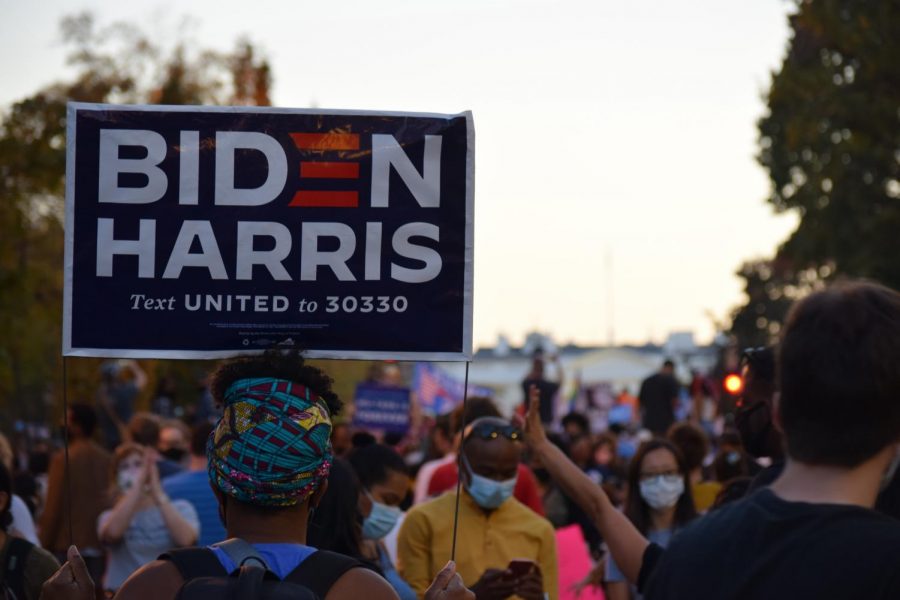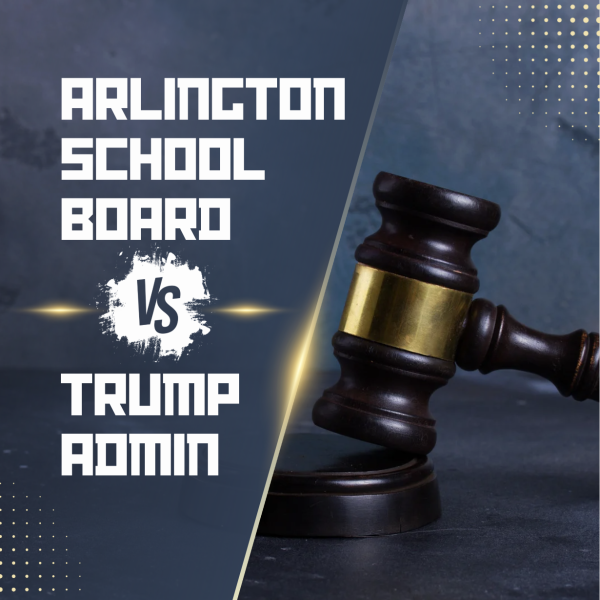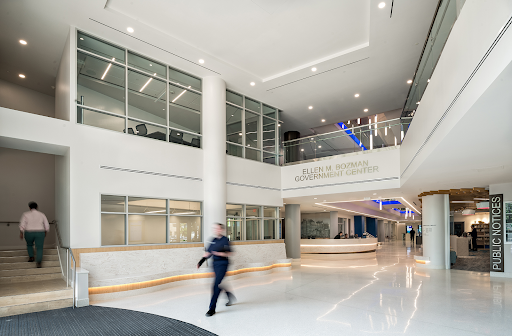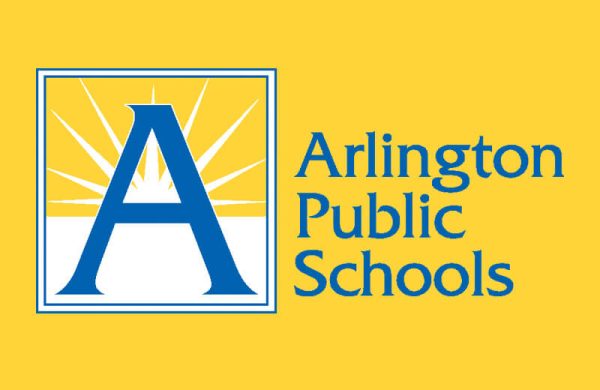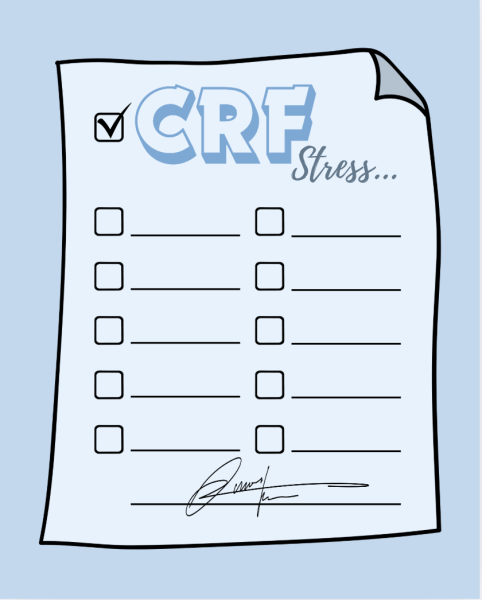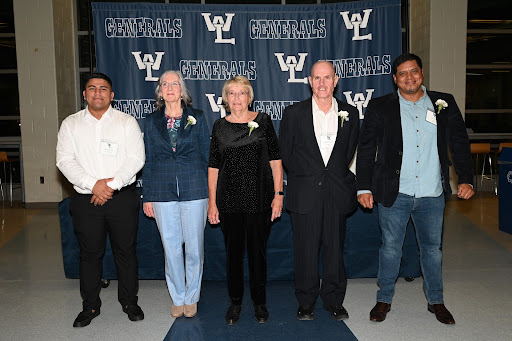Get out the vote: Casting ballots in an unprecedented election season
People celebrate in front of the White House after Biden’s win. He was declared the president-elect on November 7, 2020. The election was officially certified by the Electoral College on December 14, 2020.
The 2020 election season was unlike any other. COVID-19 caused many Americans to vote by mail, which broke numerous early voting records. By November 1, more than 93 million early ballots had been cast — nearly double those in the 2016 election.
According to senior Alana McBride, who worked at the Glencarlyn precinct polls on Election Day, most Arlingtonians voted absentee.
“We found that the people who tended to vote early were more liberal, and the Democratic Party messaging this year tended to be ‘vote by mail’ or ‘vote early’ to get your vote in as soon as [possible],” McBride said. “Arlington obviously tends to lean Democratic.”
The Virginia Department of Elections recorded 105,344 votes in Arlington for former vice president Joe Biden and 22,318 for President Donald Trump. To get people to vote in this election, volunteers had to look into new strategies because of COVID-19.
“We couldn’t do any door-to-door canvassing, so we delivered the Arlington Democratic bulletin, which is the sample ballot, to [nearly] every house, and that was a big effort,” Arlington Democratic Party precinct co-captain John Morland said.
This year also brought a large increase in youth voters. The Center for Information and Research on Civic Learning and Engagement (CIRCLE) at Tufts University estimates a 10 percent growth from 2016.
“One of the most effective methods happened to be DM-ing students [on Instagram],” McBride said. “Students spend a lot of time on social media. Basically, [I was] just like, ‘Here, I’m going to DM everybody who follows the W-L theater account, and I’ll see if I can get any responses from them.’”
The top issues for the country in this year’s election cycle included the pandemic, the economy, healthcare, Supreme Court appointments and racial and ethnic inequality. Voters were divided on these issues. Exit polls conducted by Edison Research for the National Election Pool found that 82 percent of Democrats surveyed stated the pandemic as their number one priority. Amongst the Republicans polled, 82 percent reported the economy was their prime concern.
When senior Marissa McDonnell was phone banking in swing states, she found immigration and national pride were also important amongst voters.
“I think that some people felt like Trump was very American and patriotic, and that Joe Biden didn’t represent those values,” McDonnell said.
On the phone, McDonnell talked to both undecided and decided voters. She noted there was some lack of enthusiasm amongst Democratic voters.
“The main issue that they saw was getting Trump out of office, not a specific policy that Biden addresss[ed],” McDonnell said. “A lot of people on the more liberal side were settling [for Biden]. I think [they] were concerned about [his and Harris’] history.”
McBride suspected that voters were worried about upholding democracy as well, which impacted voter turnout.
“A lot of people [in Arlington] are obviously civil servants,” McBride said. “They work for the government or they have some relation, and they were voting after watching civility deteriorate for years. That was something a lot of people just [had] on their minds.”
Voters in Arlington had two proposed Constitutional amendments on their ballots this year. The first was on redistricting, and the second was on whether disabled veterans should or should not be exempt from paying property taxes on their cars.
As for the House of Representatives race in Arlington — Virginia’s 8th district — Rep. Don Beyer (D) led Republican Jeff Jordan by about 75,077 votes. Senator Mark Warner (D) also held his seat against Republican Daniel Gade.
However, numerous Democrats across the country and in Arlington were upset this year because they were hoping for a “blue wave.” Many had believed the Senate would flip blue, and the Democrats would gain seats in the House of Representatives. However, Democrats lost seats in the House and did not gain the seats in the Senate that they had hoped to. Within Virginia, the seventh congressional district race between Democratic incumbent Abigail Spanberger and Republican Nick Freitas was closer than predicted.
McBride came to the conclusion that this was due to people splitting their tickets, which is when voters select candidates from different political parties in an election.
“[People] became comfortable saying, ‘All right, I’m irritated with the President, so I’ll vote for Joe Biden, but I don’t want Joe Biden to have power,’” McBride said. “So they [went and voted] for Republican representatives.”
This election also made history in terms of diversity. To name a few: Kamala Harris became the first female Black and South Asian American Vice President-elect, Sarah McBride will become the first openly transgender state senator, and Ritchie Torres will become the first openly gay Afro-Latinx member of Congress.
“I think it’s very important if you’re going to serve minority communities to have actual minorities as the heads of these departments because they will be able to offer a perspective that someone who’s not in that group cannot,” McDonnell said.
As for voting in the future, McDonnell hopes that people will educate themselves on the issues at hand and believe that they can promote change.
“We have to take advantage of [voting], which is why I’m involved with it,” McDonnell said. “I think it’s really important and kids should care because we have a voice and we can make a huge impact.”
Disclaimer: All opinions stated by John Morland are his own.


